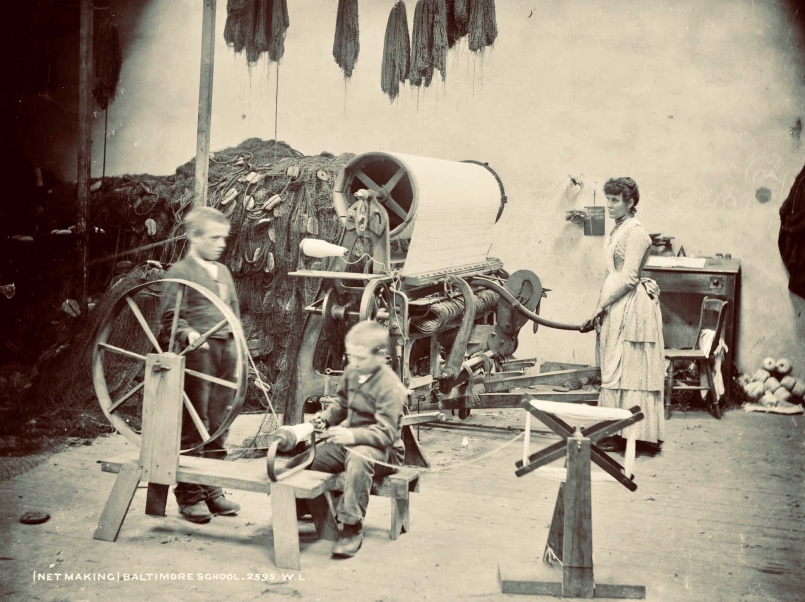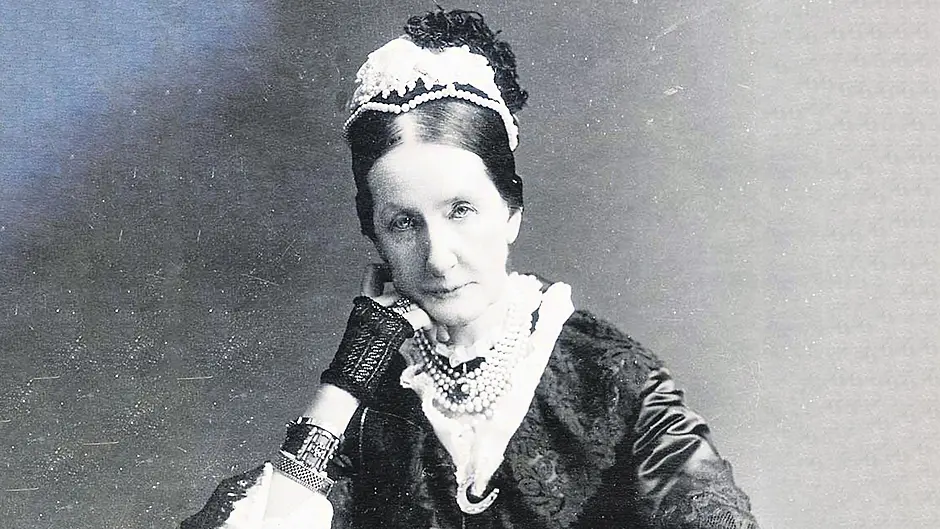With West Cork’s fishing industry currently being decimated by a decommissioning scheme, it’s worth remembering the British philanthropist who revived Cape Clear’s ailing prospects
WHAT would you do if you suddenly netted over €100m? That was the dilemma 23-year-old Baroness Angela Burdett-Coutts faced in 1837, when she unexpectedly inherited half the estate of her grandfather, Thomas Coutts, banker to the Royal family, and became one of the wealthiest women in Europe.
Perhaps she could get married? But the idea of ‘buying’ a husband sickened her. Maybe purchase a huge estate? But she enjoyed travelling, and had no interest in setting up home. Blow it on jewels? She preferred wearing simple flowers.
Believing her fortune was a blessing from God, she decided she must use it for worthy causes. In London, on the suggestion of her friend, Charles Dickens, she contributed to Ragged Schools – too wretched a project to attract fashionable philanthropists; built apartments for Bethnal Green’s poor; and established a ‘home for fallen women’. She helped heat a damp vicarage in Cumbria, even sent a spin-dryer to soldiers in the Crimea.
Coutts had ‘a horror of publicity,’ wrote her biographer, Edna Healey (Lady Unknown, 1978), being happy to go anonymous and substitute ‘founder’ for ‘foundress’, or say her donation was from ‘two maiden sisters’. In all her projects she was ‘continuously and actively involved,’ never seeking recognition in commemorative plaques or portraits. Benjamin Disraeli called her ‘a quiet, unpretending person.’
From her father, the radical MP Sir Francis Burdett, she inherited her enthusiasm for Ireland. His maiden speech in the House of Commons in 1796 attacked ‘the oppression of an enslaved and impoverished people by a profligate Government.’
The Dublin poet Thomas Moore became a frequent visitor to their house at Richmond Park, where Angela would sing along to his ‘sad, sweet, Irish airs.’
Her first involvement came in 1846-47 when she supported the Famine Relief Fund – much to the dismay of the Duke of Wellington, who believed it encouraged the Irish to give up work.
During the 1860s famine, she set up centres where flour, sugar and tea could be bought cheaply. She was against giving food for free – that would be ‘an insult to hard-working islanders’, she said.
When the potato crop failed again in 1879 she offered £250,000 to purchase seed potatoes. Later, she helped introduce sheep to help revive the economy.
Responding to an appeal by Fr Leader in 1863 to relieve distressed fishermen on Cape Clear and Sherkin, she equipped several poor families with everything they needed, paid off their debts, and offered them a chance to start a new life in Canada. Coutts’s next initiative came in 1881, when Fr Charles Davis of Rath informed Queen Victoria that vessels from France, Spain, Cornwall and the Isle of Man were reaping the mackerel harvest around Cape Clear. ‘The fish are knocking at our doors but we haven’t a bucket to take them from the water,’ he complained.
The Queen arranged for Davis to meet the Baroness, who contributed £10,000 to a boat fund, offering loans that could be paid back on interest-free easy terms.
By 1882, 75 boats had been bought by local fishermen. Visiting Baltimore in 1884, Coutts presented an inscribed clock to the O’Regan brothers of Calf Island who had repaid their boat loans and become self-supporting.
 Net making at the Baltimore school.
Net making at the Baltimore school.
Perhaps her greatest achievement locally was the foundation of the Baltimore Industrial Fishery School, where boys were taught navigation, boat building, net, rope and line making, and the curing of fish. When she arrived on the yacht Pandora to officially open the school on August 17th 1887, a salute boomed from the shore and 100 small fires are supposed to have twinkled on the hillsides.
By then, Cape Clear had 20 boats, and islanders were no longer dependent on the potato. After 1893, Cape Clear islanders could also travel from Baltimore to Skibbereen by railway – another of her projects.
By then she was married to her former clerk, William Ashmead Bartlett, an American 37 years her junior, and an unscrupulous gold-digger. The marriage meant forfeiting half her inheritance, and leaving much less for her charities.
When Baroness Angela Burdett-Coutts died in London on December 30th 1906, she was given a state funeral in Westminster Abbey.
On January 5th 1907, working men lined the streets wearing black ties, their wives with black ribbons in their bonnets, to watch her cortege pass.
The Southern Star reported ‘widespread expressions of sorrow’ felt by local fishermen.
 A clipping from The Southern Star after her death.
A clipping from The Southern Star after her death.‘Doubtless Baltimore would never have been in its present prosperous and flourishing condition were it not for the kindly intervention of this noble benefactress.’
The paper carried the story of one fisherman who had written to tell the Baroness that his family was ‘nightly disturbed by the frolics of the fish outside their door’ but was ‘handicapped in not having a boat or gear to catch them with.’
The ‘Angel of Baltimore’ promptly ordered him that boat, and all the equipment he needed.
The rise and decline of fishing on Cape Clear
On a recent edition of our In The News podcast, reporter Jackie Keogh went to Cape Clear to speak with islanders about the iconic location's history and the rise and decline of fishing on the island.
We hear from Mary O’Driscoll, an islander who has been cataloguing Cape Clear’s fishing history, and Kieran Cotter, a former RNLI coxswain and fisherman.







